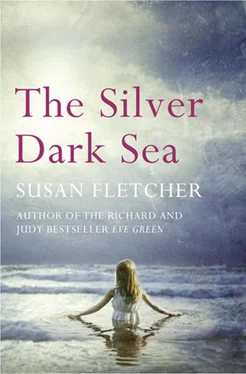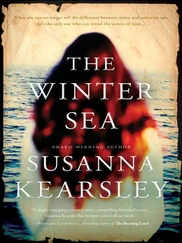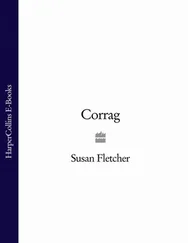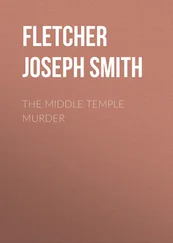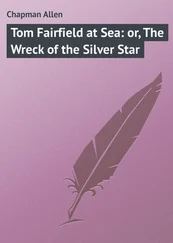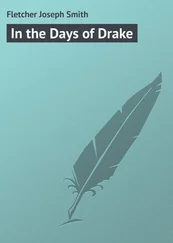1 ...7 8 9 11 12 13 ...22 North of the crossroads, the island rises up. It gathers height quickly. After the school, the grass becomes sharper and thistles grow by the roadside. Here, the sheep are more plentiful. They lift up from the lane with their swinging, clotted tails. The first house is High Haven – a small farmhouse down a single track. It has a wood-pile under tarpaulin and four cars in its driveway, all without tyres, or engines, or doors, but Nathan keeps them all the same. It is in his nature, perhaps – to keep, to store. He hates loss; he has lost enough things. He looks at these old cars, now. Nathan is awake – he has barely slept – and he stands in the kitchen with a mug of tea and an aspirin on his tongue. He swallows the pill with a toss of his head, and stares at the empty wheel-arches. Beyond, he can see Wind Rising. It’s the biggest farmhouse, and the oldest. Nathan grew up there. Now, his brother’s family live in it – he sees the open-sided barn, the row of Calor gas bottles, the silage in black bales. Their dog is scratching her ear with her hind leg and Nathan can hear her chain ringing, or he thinks he can. He looks at his wristwatch; not yet six.
The woman at Easterly is also awake. Her cottage is beyond High Haven, along the same track so she must pass those cars propped up on bricks whenever she leaves her home. She does not like those cars, and she’s told Nathan this. But why would he listen? At this precise moment, she stands in her dressing gown. She rubs rose-scented hand cream into her hands as she waits for the toast to pop up, and she thinks of her children, or those that are left. Emmeline lists them – Ian, Hester, Nathan . Her hands tell the story of a life on a farm – age spots, scars, papery skin on the backs of them – and she turns them over, studying.
The lane keeps rising. The north is the wildest part of the isle – the gorse is wind-bent, and the ditches are deep. In winter it is a harsh place, not made for life. But in the summer, the skylarks sing down upon it and to kneel and touch the earth is to feel its warmth. It is sunlit here, now. Here, at the island’s highest point, all the coasts can be seen. A house with a yellow door perches in the north-east corner, near the cliff edge. It has gulls on its roof and tomato plants in its porch and its name is carved into driftwood – Crest , propped by the door. The woman who lives here is brushing her teeth. She is in her early forties but looks older somehow. She bends down to the sink, spits.
After this, there is only the lighthouse. Its lantern is, now, sleeping. So, too, is the girl who lives at its base, who has turned the old lighthouse-keepers’ quarters into a tea room and a few hostel rooms. She has worked hard for it. She sleeps on her front, in a floral vest and knickers that match. As the sunlight finds the back wall of her room, her alarm clock goes off and she stretches, rubs her eyes. Six fifteen. Rona could do with more sleep but she has plenty to do – breakfast, linen, fresh scones, her accounts. She tells herself this, as she turns off the alarm: get up. A new day. In theory anything could happen but Rona is pretty sure it won’t.
* * *
Parla wakes slowly. It stretches, lowers a foot from its bed.
In Wind Rising, the top of an orange juice carton is pulled apart. Constance wears an oversized man’s pyjama shirt that reaches her knees and a pair of walking socks. Her hair was black, once – raven-black, almost blue; now she has streaks of grey in it. Like a misty night, she tells herself. It is her reassurance.
She pours the juice. A man?
At Sye.
Dead?
Nope, he’s alive. Or he was last night.
Who is he?
No idea. Without taking his eyes off the paper, Ian bites into his toast.
None?
He was barely conscious – he says this with his mouth full. We couldn’t ask him much.
She looks out of the window, drinks. Constance was almost asleep when her husband returned last night. He’d climbed in beside her, beer-smelling, and she’d thought to ask what happened tonight? Where? But he’d been snoring promptly. He’d lain on his back, slept deeply, and so Constance could only imagine.
She’d not imagined this. A man washing ashore … Incredulous. Have you spoken to Ed about it?
Sam was there. He’ll have told him.
He should be told, Ian. A fishing boat or something might have gone down. There might be others out there who need saving. Shouldn’t you phone him?
Sam , he repeats, will do it. Or Tab will. Leave it.
Constance watches him. And as always, when she watches him, she thinks he is my children’s father. She thinks, too, he’s my husband and that amazes her – that she is old enough to be married or that she was ever bold enough. But her first thoughts are of the children, always, who are not so childlike these days. Will Jonny have the same wide neck, when he’s older? Will Leah’s skin also wrinkle by her mouth, in time? They take after their father, she knows that – in their looks, and quiet ways.
She sips. Ian?
He makes a sound – annoyed. He wants to read the paper.
What does he look like? This man?
What?
This man from Sye. What does he look like?
She waits. Constance waits for the answer, and the longer she waits, the more she thinks I know what he looks like. She can guess.
Dark , he says, casually.
Skinned?
No – dark-haired. His skin’s pale.
Not old, then?
Late thirties, maybe. Early forties. Hard to tell.
Beard?
He looks up. Constance. It is his warning voice.
She meets his stare. She holds her gaze until he looks away. Perhaps what surprises her is not that she was bold enough to marry, but bold enough to marry him – Ian, whose temper was as known as the Anne-Rosa is. And like the Anne-Rosa , it was mistrusted and whispered of and could rise out of the darkness, slick with hanging weed. She’d been told of it. But Constance was never afraid. Once, just once, in their early days of marriage they had argued about the farm – what had it been? A broken machine? A sheepdog that was not learning? She cannot recall it now and perhaps it does not matter. But Ian had struck the wall. He’d given a single roar and slammed his fist against it so that the wall shook. That had silenced them both – from loud voices to a sudden, incredible hush in which Constance could hear the dust settling onto the floor. Hands on her knees, she examined the plasterwork – broken, powdering. Then she pulled on her shoes and, without a word, she walked down the lane towards the harbour – meaning, absolutely, to catch the ferry and make her way back to the mainland, to the town she grew up in and still missed sometimes. Ian followed, pleading. I’m so sorry … Stay . It never happened twice. On that quayside, Constance turned to her husband and vowed – swore with gritted teeth and her hand to her chest – that she would leave him for good if he ever struck another thing. Anything, Ian – the wall, the dog, a pillow, her. I promise. Do you understand me? Yes, he understood her; Constance always keeps her word. And he has shouted since, and he’s slammed doors, and once, having argued with Nathan, he kicked the rainwater barrel with such power that it ruptured and the rush of water sent the chickens running in the way that chickens do – as if the world is ending. Ian can curse like no-one else she knows. And it is blunt, unimaginative swearing so that she winces. But that’s all he’s done, in twenty-four years. It is all he’ll ever do.
Читать дальше
